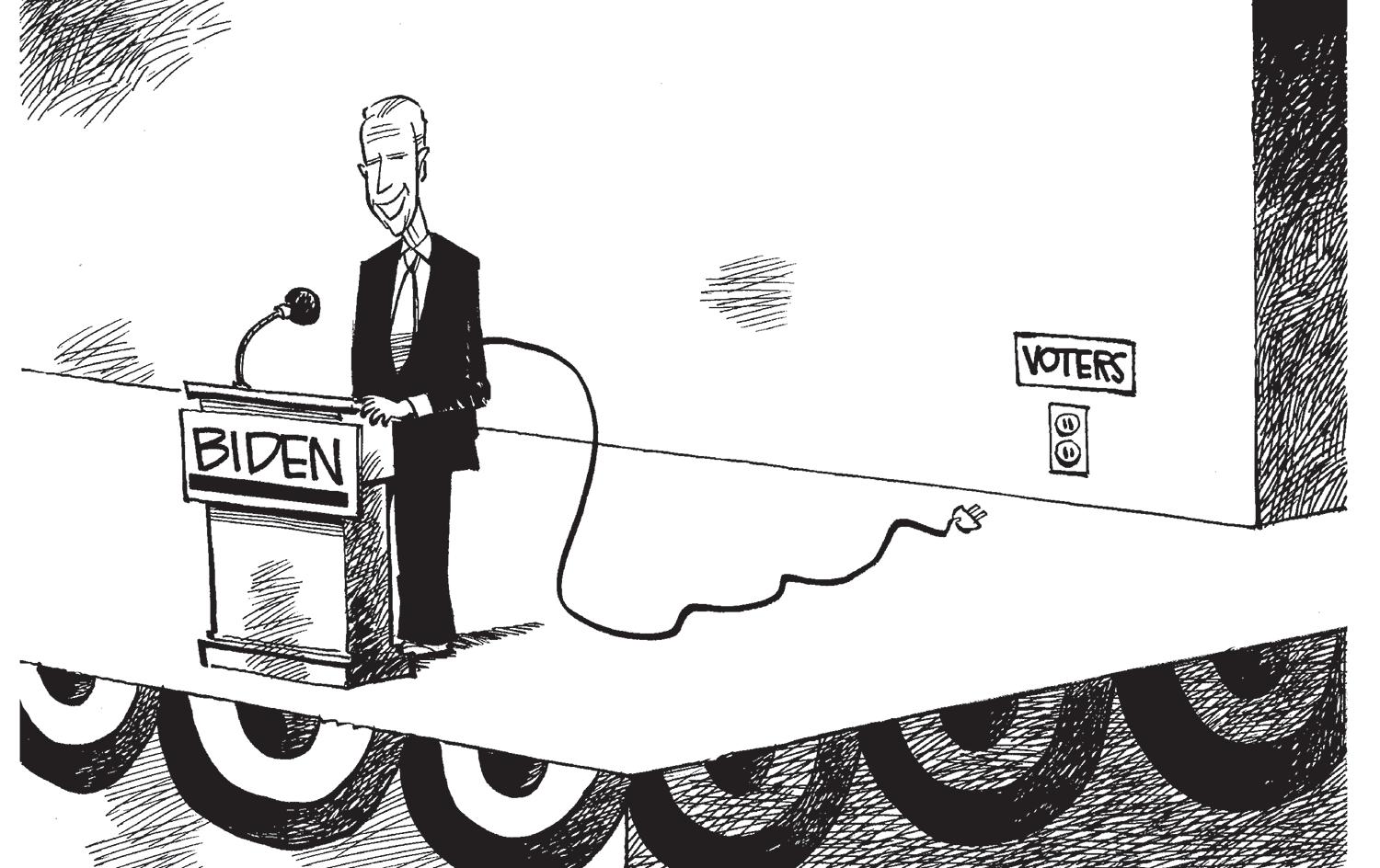
6 minute read
Harley Quinn: Birds of Prey
from The Slate 3-3-20
by The Slate
The Slate Speaks
Employers should not judge applicants’ social media
Advertisement
Today, this generation has been introduced to many social media outlets. Social media content can range from tweeting about the lack of milk in the refrigerator to an abstract Instagram post on political views. From Instagram, to Facebook, to the newest sensation Tik Tok, we have access to the world by simply hitting the upload button.
However, this simple action can lead to professional consequences. Employers look at social media pages during the job application process.
In the professional world, employers are not allowed to ask personal questions such as an applicant’s religion or relationship status during interviews.
Seventy percent of employers will look at personal online accounts in search of a candidate’s personality, according to a 2017 survey conducted by Careerbuilder.com.
This means your next employer could potentially see that photo of you at Wibs last weekend. Alternatively, employers could also see your
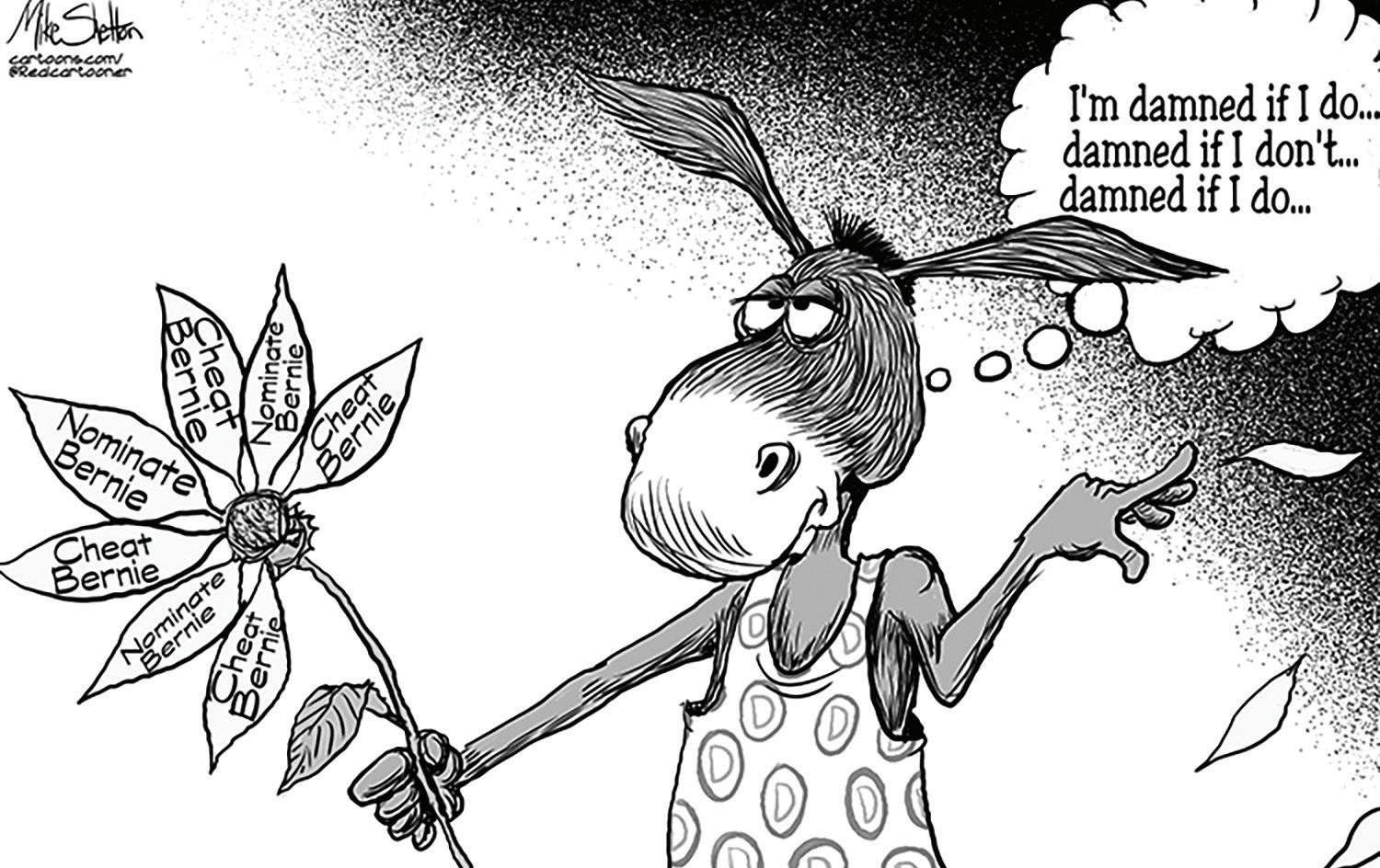

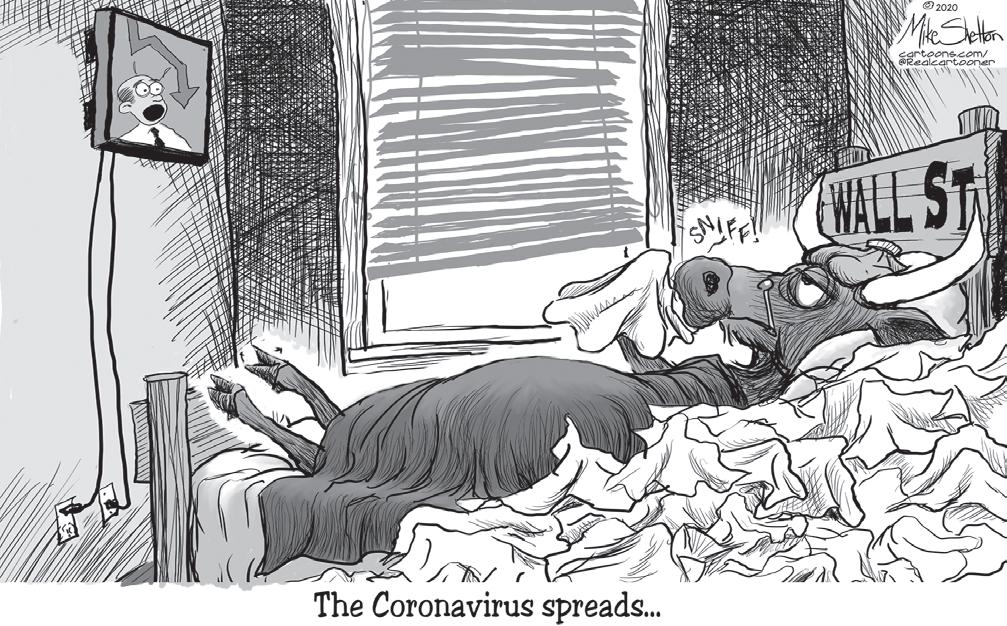
philanthropic volunteer work.
But how much of your social media presence should be taken into account by potential employers?
Careerbuilder also listed what social recruiters look for while looking over an applicant’s profile.
For instance, posting inappropriate or provocative posts, discriminatory comments related to race or gender, or frequently posting were not advised. The website did, however, advise us to promote one’s professional image, awards and accolades.
Although it is best to stray from culturally insensitive posts in general, what or how much we post on social media should not be for the interest of job recruiters.
This generation creates social media profiles as an outlet to share content with peers. It helps us stay connected and express our thoughts, creativity and opinions. Social media apps like Twitter, Instagram and TikTok are for the enjoyment of friends and family. These apps are not meant for catering to employers, but rather a form of expression. It is for recreational purposes.
The alternative option to restricting what can be posted is making a private personal account.
This revelation results in the reduction of stress because of the power to choose who is able to view your content. However, the underlying mystery of why your account is private may concern a potential employer, as well as the restriction of publicly expressing yourself.
Furthermore, altering who sees your profile because it may hinder possible employment is tedious.
Additionally, choosing if applicants are suitable for a job just by looking at their social media can give a false sense of character.
If employers want to see what applicants are like outside of the office, it should be through the formality of an interview and their given application.
Potential employees may display themselves a certain way online, but it does not mean they act the
Carmine Scicchitano/ The Slate Social media is meant for self-expression, not for employers.
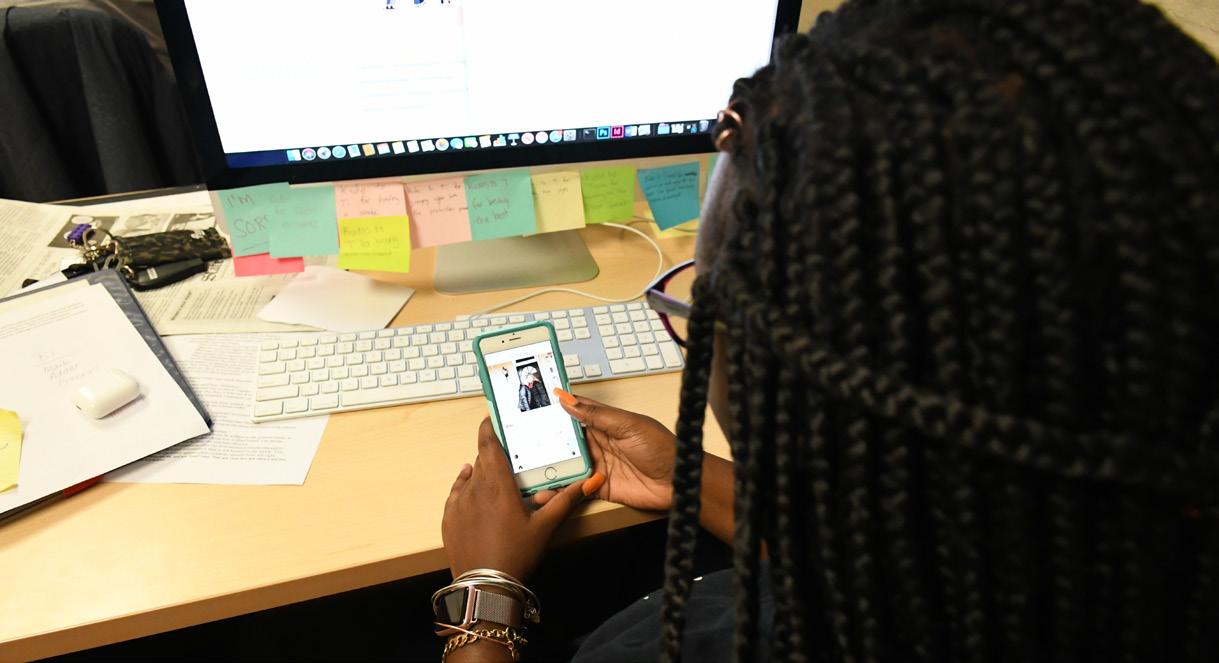
same way in a professional setting. Their credibility can instead be proven with a quick call from their references.
Another way to prevent getting these false impressions is for job aspirants to create professional media accounts.
Instead of looking at recreational accounts, employers are directed to professional accounts on apps which are built to showcase professionalism, build reputation and network, such as LinkedIn. Apps like these are ideal when trying to scout for an individual’s professional reputation.
Personal online accounts should form a border which separate one’s business persona from their private life. Social media should not have the power to make a strong or misleading impression to professional recruiters.
Take five minutes: Voters need to be wary of media tactics leading up to election
Maria Maresca Staff Columnist

In contemporary America and across the globe, there has been an increasing concern and widespread practice of bias in the media when discussing politics. The media has become an undeniable influence in current times thanks to easy use and convenient accessibility.
Throughout the media, politics is undergoing a complete transformation with the incorporation of media bias, which continues to infiltrate the sources that are accessed by the average American on a daily basis.
Therefore, elections and the assessment of political candidates on mass scales are heavily impacted when voters consider the information they are provided with via news outlets.
A NewsBiasExplored.com article discusses the most archetypal ways that media bias permeates through the news, which is due to the utilization of word choice, errors, the reduction of debate, story design, and the exclusion of select sources.
Scholars also recorded that due to the complexities of media bias and the media’s methods of expressing information, observers generally have difficulty determining the consistencies with fairness or unfairness that are attributed to certain candidates or political parties. According to a 2016 survey performed by Pew Research Center, over half of Twitter users receive news on the social platform itself. In comparison to Facebook, Twitter has a smaller conglomeration of users which has allowed Facebook to rein supreme as the most prominent social media base for accessing news.
Furthermore, the study documented that the majority of social media news consumers only read the news on one site.
Without expanding their news sources, users are only putting themselves at a disadvantage because they are failing to compare sites to one another.
With that said, using multiple sources increases the chances of creditability and prevents political bias. Understand
ing the political preferences of an audience can also be important for connecting information and what is included and excluded, which comes down to personalization of media apps.
Additionally, six media companies now control about 90% of what we, as viewers, read, watch and listen to.
This solidification of control only further leads to the consolidation of media bias on a mass scale which magnifies the risk for intentional bias and the exposure of bias to viewers.
Finally, over 40% of voters were recorded to be most-influenced by personal characteristics of political candidates, which seemingly held more significance than both their policies and governmental plans once elected into office.
Clearly, as we have entered the modern era, media bias has snowballed into an unstoppable phenomenon that continues to become entangled with politics and news as a whole.
Our founding fathers ardently believed that a literate and educated citizenry was necessary to the good functioning of democracy and that the news’ media is imperative to such.
As the 2020 presidential election approaches, I advise all voters, young people in particular, to be wary of the tactics used by the media to sway opinions and the implications that follow.
Where’s your voice?
Shippensburg University students, staff, faculty, administrators and affiliated people are welcome to submit letters to the editor for publication.
Letters must be no more than 300 words and may not contain derogatory language or messages of hate or discrimination.
The Slate may reject letters for any reason.
Letters become property of The Slate.
Letters without a name and title (affiliation to SU) will not be accepted.
• Letters should be sent to The Slate one week prior to the day of publication. Late letters may be accepted but published the next week.
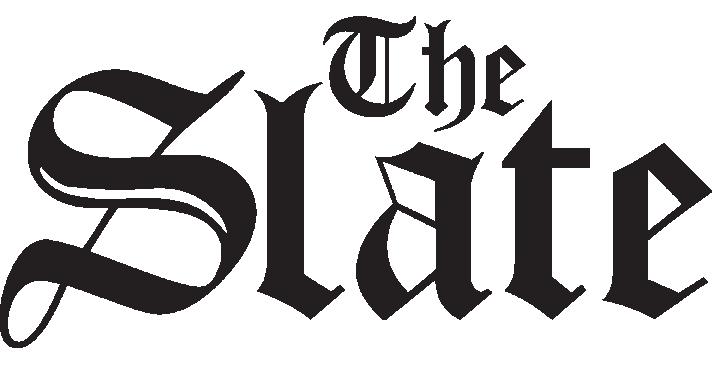
THESLATEONLINE.COM
Reporting truth. Serving our community.
Contact Us slate.ship@gmail.com (717) 477-1778
Mailing Address The Slate - Shippensburg University CUB Box 106 1871 Old Main Drive Shippensburg, PA 17257
Office Location Ceddia Union Building Room 250 Shippensburg University
Management slate.ship@gmail.com Jonathan Bergmueller.........Editor-in-Chief Hannah Pollock...............Managing Editor
News slatenews@gmail.com Emma Tennant.......................News Editor Noel Miller..............................News Editor Sebastian Riefkohl..................Asst. Editor
Opinion shipspeaks@gmail.com Tiana Thomas............Asst. Opinion Editor
Ship Life slate.shiplife@gmail.com Justin Hawbaker...............................Editor Chaela Williams......................Asst. Editor
Multimedia slatephotos@gmail.com Meghan Schiereck...........................Editor Dave Krovich...........................Asst. Editor Carmine Scicchitano...............Asst. Editor
Copy shipcopy@gmail.com Mia Furby................................Head Editor Emily Bush.......................................Editor Olivia Riccio.....................................Editor
Public Relations slate.circpr@gmail.com Breann Sheckells..........................Director Michaela Vallonio.................Asst. Director Jacqueline Cavalere.............Asst. Director Olivia Faenza.......................Asst. Director
Sports slatesports@gmail.com Christopher Wurtz............................Editor Matthew Gregan......................Asst. Editor Isaiah Snead...........................Asst. Editor
A&E slateae@gmail.com Zoey Lomison..........................Asst. Editor Ryan Cleary.............................Asst. Editor
Business/Advertising slate.adv@gmail.com Nathan Farr..................................Manager
General Staff Sam Fegan.......................................Writer Isabella Brignola...............................Writer Christian Eby....................................Writer Chase Slenker...........................Columnist Maria Maresca...........................Columnist Adam Friscia..............................Columnist






